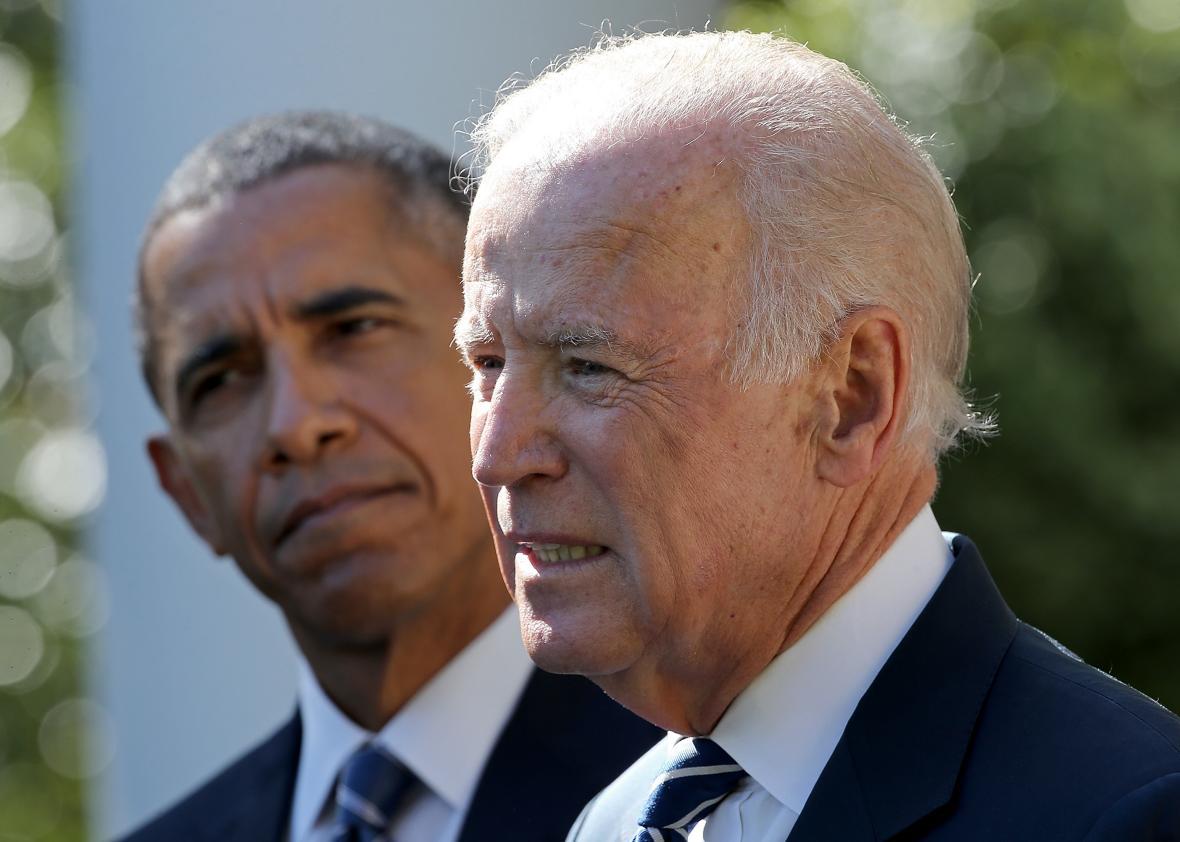On Wednesday, Vice President Joe Biden announced that he will not run for the 2016 presidential nomination, effectively signaling that his political career will end when he leaves office in 2017. With Biden’s signature political achievements behind him, his legacy is already a subject of debate: My colleague Jamelle Bouie reminds us that Sen. Biden was, regrettably, the Democratic face of the drug war, while the New Yorker’s Jeffrey Toobin praised him for playing “a more consequential role in the history of the Supreme Court than almost any senator in American history.”
But to my mind, Biden’s legacy lies neither in his racially fraught anti-crime bills nor his efforts to shape the Supreme Court. Instead, the vice president will be remembered as President Barack Obama’s conscience on LGBTQ rights.
It’s easy to forget now, but for most of his first term, Obama was fairly lukewarm on marriage equality—the LGBTQ issue of the day. After co-orchestrating the repeal of “don’t ask, don’t tell” in late 2010, Obama backed away from gay rights, declining to commit to full equality, even after the 2011 New York marriage battle. Throughout the early months of 2012, gay Americans waited anxiously for Obama to “evolve” on marriage, but the president remained silent. As the 2012 election approached, it appeared alarmingly likely that Obama would once again campaign on a non-equality platform.
Biden parroted Obama’s line on marriage equality until April of 2012, when he attended an event hosted by a gay couple with two children. The Human Rights Campaign’s Chad Griffin asked him to talk about his “personal views” regarding same-sex marriage. Biden first looked uncomfortable. Then he began to speak:
I look at those two beautiful kids. I wish everybody could see this. All you got to do is look in the eyes of those kids. And no one can wonder, no one can wonder whether or not they are cared for and nurtured and loved and reinforced. And folks, what’s happening is, everybody is beginning to see it. Things are changing so rapidly, it’s going to become a political liability in the near term for an individual to say, “I oppose gay marriage.” Mark my words.
Young people, Biden explained, couldn’t understand why gay people were still excluded from marriage. “And my job—our job,” he concluded, “is to keep this momentum rolling to the inevitable.”
Two weeks later, Biden declared his support for marriage equality on national television. Three days later, Obama did the same. Never before had a sitting president endorsed the right of same-sex couples to wed.
Would Obama have eventually championed marriage equality without Biden’s push? Of course. We now know that Obama lied about his opposition all along, hiding his actual views for fear of political blowback. The truth was bound to come out eventually—but Biden expedited the process at a key moment, turning the 2012 election into a referendum on marriage equality (at least in part) and thus making Obama’s victory all the sweeter. Obama wanted to play along with the fiction of his “evolution” for a while longer. Biden saw the stakes—saw the real families whom the law considered unequal—and forced the president’s hand. By refusing to lie, Biden made his president and his party more honest.
Even today, Biden remains at the forefront of the LGBTQ movement: Recently, he has begun calling trans discrimination “the civil rights issue of our time,” and he railed against intolerance in stark, moving terms in his October 2015 HRC keynote. But Biden’s legacy as the LGBTQ community’s first absolute ally in the upper echelon of government is already secure. As night falls over the twilight of his career, it is a legacy he can, and should, cherish.
